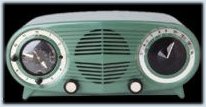|
How
to get into...
PRESENTATION
If you want to be a radio presenter, experience is a must. Many
presenters start in hospital or student radio learning the talents
they need to entertain, play records and present programmes. Send
an audition tape and CV to the Programme Controller of the station
you wish to work for, but be warned: presentation is the most popular
career choice in radio, and Programme Controllers receive many hundreds
of demo tapes.
Don't be disheartened
by rejection; take notice of any criticism or comments and keep
trying. Most importantly, listen to the programming style of any
station to which you apply. A Programme Controller is not likely
to take on a presenter who sounds radically different to the usual
station output. There are no formal qualifications for presenters,
but a quick brain, initiative and a high standard of general knowledge
are essential. A good academic record is a great help.
NEWS
Another very popular career choice is radio journalism. Almost every
newsreader you hear on the radio is also a journalist, with responsibility
for reporting, interviewing and writing news stories. Very few radio
stations employ "voices" just to read the news. Most radio
journalists study for a degree (which can be in any subject, as
long as you get journalistic or radio experience while you're at
college) before taking a Post-Graduate Diploma in Radio or Broadcast
Journalism.
Alternatively, at least one university (Nottingham Trent) now offers
a degree in Broadcast Journalism. The most useful vocational courses
are validated by the National Council for the Training of Broadcast
Journalists. These courses are very specialised and practical, teaching
skills such as interviewing, editing, news writing, law and public
administration. Most
courses also offer a two or three week work experience placement
at a radio station.
Once you have
completed such a course you should write to the News Editor of the
station for which you want to work, enclosing a CV and a short demo
tape of your voice work. Some journalists do get work in radio without
a post-graduate diploma. They may have other relevant experience
such as newspapers, university radio, etc.
|




